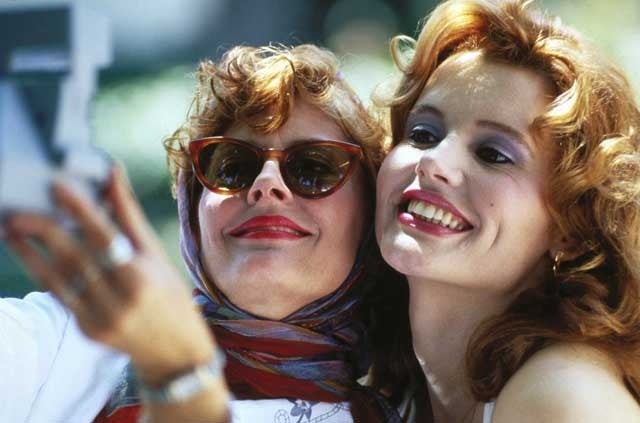It's not just men who can do firm fictive friendships - but women might do them differently: week in books column

Friendship was essential to Aristotle’s well-lived life, much more so than the flibbertigibbet passions of romantic love, while Oscar Wilde’s model of a friend was a trustworthy contrarian, bold enough to “stab you in the front”.
So AC Grayling told us as he swept through centuries of philosophical thought on friendship at the Gibraltar International Literary Festival last weekend, his words met by a quiet accompaniment of nods and smiles. Oh to have a good, solid friendship over the hundreds curated on Facebook. And aren’t women especially adept at cultivating those companions with whom the closest intimacies are shared and occasionally even laughed over?
Not in fiction, says Professor Grayling. From the Homeric “bond” between Achilles and Patroclus onwards, the great friendships in literature and legend are all, by and large, male.
It’s true that the rambunctious double-act camaraderie that we find in fiction – Holmes and Watson, Jeeves and Wooster, Batman and Robin – is rare between women (perhaps Thelma and Louise are the closest that come to it, on film) and Grayling’s heart seems to be in the right place when he puts this down to the fact that women have historically been secreted away in harems and domestic quarters, and so
“silenced in literature…”
The few exceptions that Grayling notes: Ruth and Naomi’s biblical friendship; Jane Austen’s sisterly confidences; the Bloomsbury circle’s eccentric alliances; Vera Brittain’s bond with Winifred Holtby, made manifest in the former’s biography of the latter after she died. But these are windows that didn’t amount to a tradition, he reflects.
The conversation on friendship continued beyond Grayling’s lecture, and across the festival, in all sorts of ways. Jonathan Aitken, in talking about his biography of Margaret Thatcher, reminded us of Norman Tebbit’s words over her ousting from office: “I regret I left her to the mercy of her friends.”
Claudia Roden and Madhur Jaffrey, meanwhile, drew in the Gibraltarian crowd with reminders that there is more than one way of nourishing friendships, female or otherwise.
But the niggle about women not doing friendship in fiction remained until Maggie Gee led a head-on challenge to Grayling’s point about sisters, and domestic quarters, by quoting Christina Rossetti: “For there is no friend like a sister/To fetch one if one goes astray/To lift one if one totters down.”
Far from being a lowly subsidiary of “friendship proper”, she said, sisterly friendship in the fiction of Jane Austen, or George Eliot, consisted of much more than sitting-room small talk, and often touched on the biggest questions that a work of fiction can ask: “Friendships between sisters in literature has involved philosophical conversations on how to live your life, who you marry and have babies with… Classing that as ‘domestic’ is wrong.”
Gee had other examples. “The best one I can think of is the spiritual affinity and instant friendship between Mrs Wilcox and Margaret Schlegel in Howards End, which leads Mrs Wilcox to break the laws of family inheritance (by trying to leave Howards End to her friend, Margaret).
“Perhaps this is EM Forster saying that men refuse to take women’s friendships seriously, that the genetic male imperative prevails… Or Virginia Woolf’s essays on other women writers…”
Or even Woolf’s imaginary novel, which emerges in A Room of One’s Own, in which she fashions a plot that revolves around her two central characters: “Chloe liked Olivia and they worked in a laboratory.” Yet, it is not irrelevant that this was an imaginary novel, written when her imaginary author, Mary Carmichael, could find the mental, and physical, space to do so.
That space has been found – it was found some time ago. The commercial end, propped up by “chick lit” that novelist Kate Mosse highlights for its strong female bonding, more than meets its literary fiction counterpart in books ranging from Reading Lolita in Tehran and Girls of Riyadh to Zadie Smith’s most recent novel, NW, in which the central relationship is one of female friends growing up in the same patch of north-west London.
Grayling’s model of literary friendship seems to follow the literary model of the heroic “quest”, but this isn’t the only way to depict and dramatise platonic love. And anyway, let’s not forget that the most recent retelling of the Achilles and Patroclus love story, in The Song of Achilles, won acclaim for Madeline Miller. So a heroic, testosterone-fuelled friendship between men can be fashioned by women too.
Wyld wins another award but giving birth comes first
Evie Wyld was one of 12 novelists – and there were only four women among them – to win the 2014 European Union Prize for literature in Brussels this week. She gave a video acceptance speech, explaining that she couldn’t be there to collect her award because: “I’m just about to have a baby and for me, giving birth on the Eurostar was too much of a risk.”
Her agent couldn’t be there either as she was heavily pregnant too, so another agent, Donald Winchester, accepted it on her behalf. Wyld was one of the youngest writers to be selected for Granta’s Best of Young British Novelists last year, and her second novel has won several other awards, including the Jerwood Fiction Uncovered Prize, and Australia’s Miles Franklin Award.
Subscribe to Independent Premium to bookmark this article
Want to bookmark your favourite articles and stories to read or reference later? Start your Independent Premium subscription today.

Join our commenting forum
Join thought-provoking conversations, follow other Independent readers and see their replies